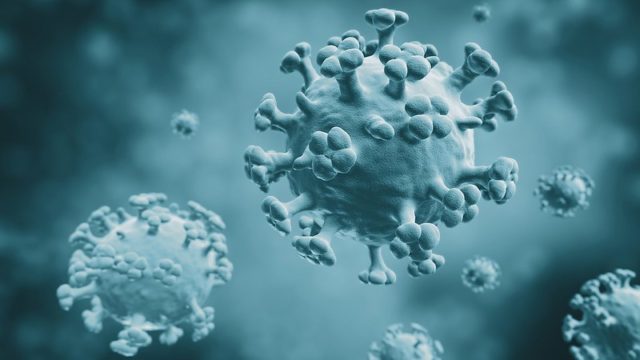
GSK and Vir Biotechnology struck up their influenza R&D collaboration three years ago, aiming to build on a respiratory drug relationship forged at the start of the Covid-19 pandemic. The British pharmaceutical giant ended the Covid alliance last year. Now the influenza partnership is winding down too.
The two companies have terminated their research collaboration on Vir’s antibodies for influenza, Vir said in its report of fourth quarter and full year 2023 financial results on Thursday. San Francisco-based Vir retains rights to these antibodies and is now free to seek other partners to advance their development.
The end of the influenza collaboration follows the Phase 2 failure of one of the partnered programs, VIR-2482. This antibody, which came from Vir’s proprietary antibody discovery platform, is designed to target a region on the neuromindase protein found on the surface of both influenza A and B strains. A mid-stage clinical trial was evaluating VIR-2482 for the prevention of seasonal influenza A illness. Last July, Vir reported preliminary results showing the antibody did not meet either primary or secondary efficacy goals of the trial. In its report of financial results, Vir said it expects a full analysis of the trial data will publish in a scientific journal in the second quarter of this year.
Leerink Partners analyst Roanna Ruiz wrote in Friday research note that the termination of the alliance makes sense, given the Phase 2 failure of VIR-2482. But she added that Vir executives said they are pursuing partnerships for their next-generation influenza programs, which span antibodies and antibody drug conjugates.
VIR-2981, an antibody drug candidate for both influenza A and influenza B, is one of the programs Vir said it expects will have an investigational new drug application filed with the FDA in the next 12 to 24 months. The company is also developing VIR-2482 as a prophylactic for influenza A. This antibody targets hemagglutinin, a protein on the surface of the influenza virus. Vir said lab test results show that this antibody has been able to cover all major strains influenza A strains since the 1918 flu pandemic.
When GSK and Vir began working together in 2020, the focus was Covid-19 drug R&D. The pharma giant made a $250 million equity investment in its new partner to begin that partnership, which yielded the antibody drug sotrovimab. Though the drug, brand name Xevudy, landed FDA authorization during the pandemic, the FDA later withdrew that regulatory status as the drug proved ineffective against the omicron strain.
The influenza partnership began in 2021 with GSK paying Vir $225 million up front and increasing its equity stake by $120 million. Vir stood to receive up to $200 million more upon the achievement of milestones.
Vir’s internal pipeline includes a drug candidate in Phase 2 testing for chronic hepatitis delta and another program in Phase 2 testing for chronic hepatitis B. VIR-1388, a T cell vaccine for preventing HIV, is in Phase 1 testing. Vir’s Covid-19 R&D is also continuing without GSK. VIR-7229 is a next-generation Covid antibody that Vir says is AI-engineered to have increased potency, breadth, and resistance to viral escape. The company expects to file the regulatory paperwork later this year to support evaluating this antibody in a Phase 1 clinical trial.
Vir reported having $1.6 billion in cash, cash equivalents, and investments as of the end of 2023.
“Our financial strength allows us to fund multiple clinical programs through major inflection points while enabling the flexibility to invest in external innovation opportunities,” Vir CEO Marianne De Backer said in a prepared statement.








